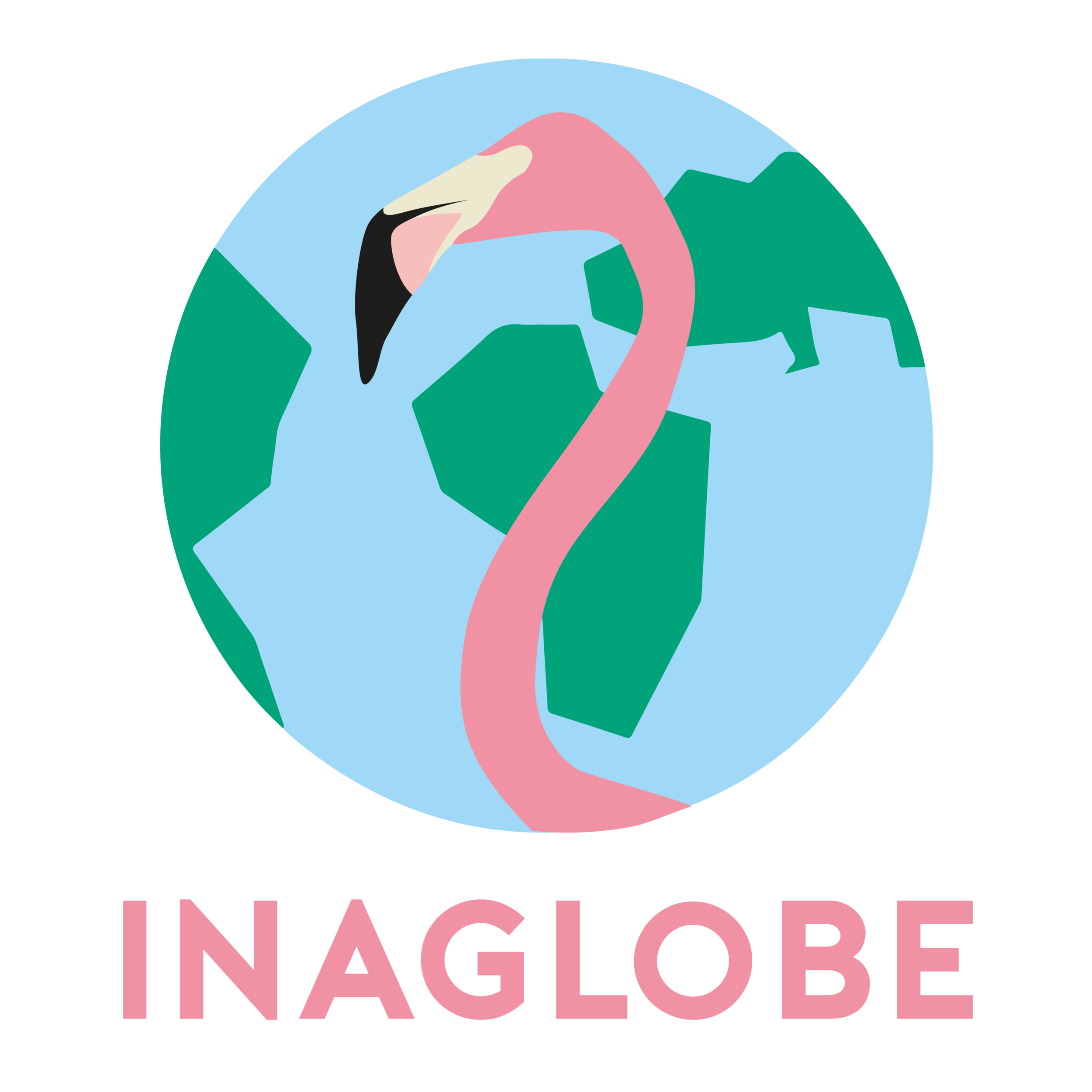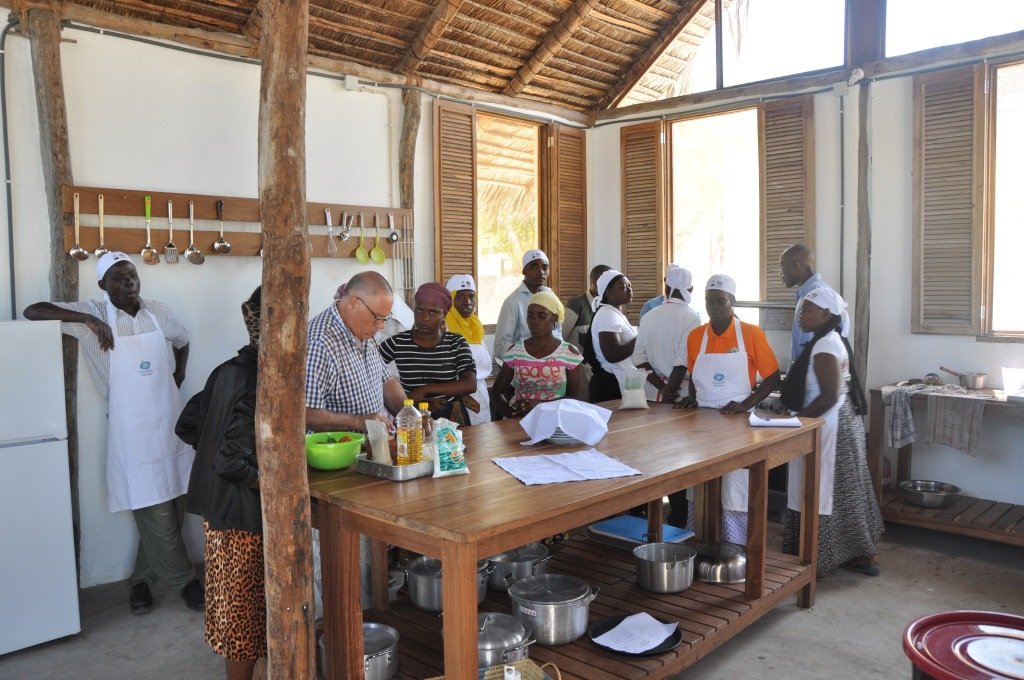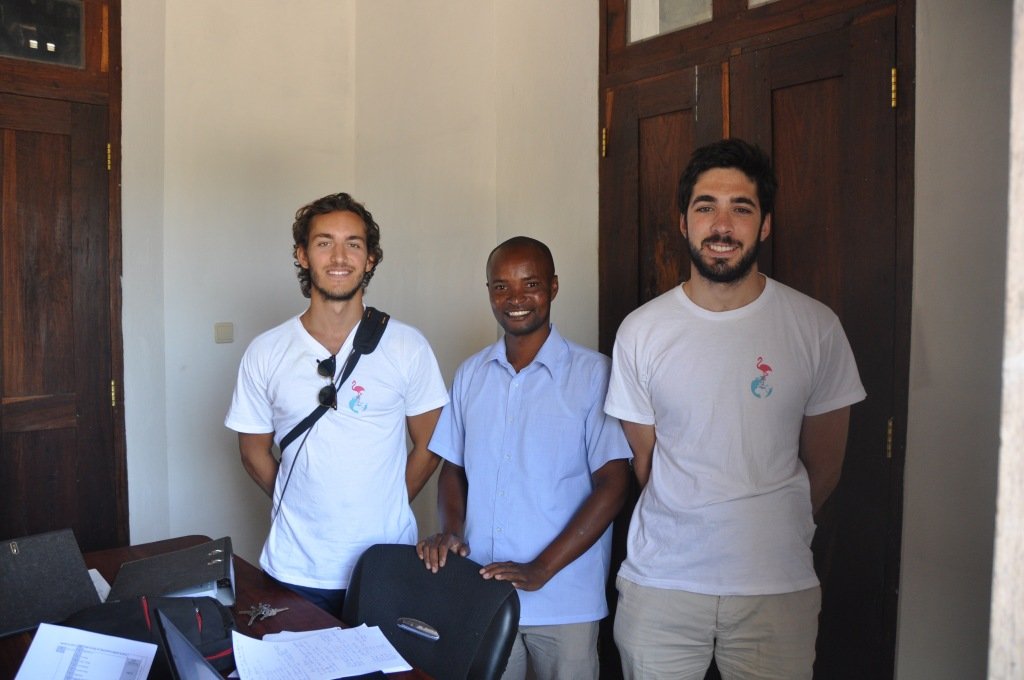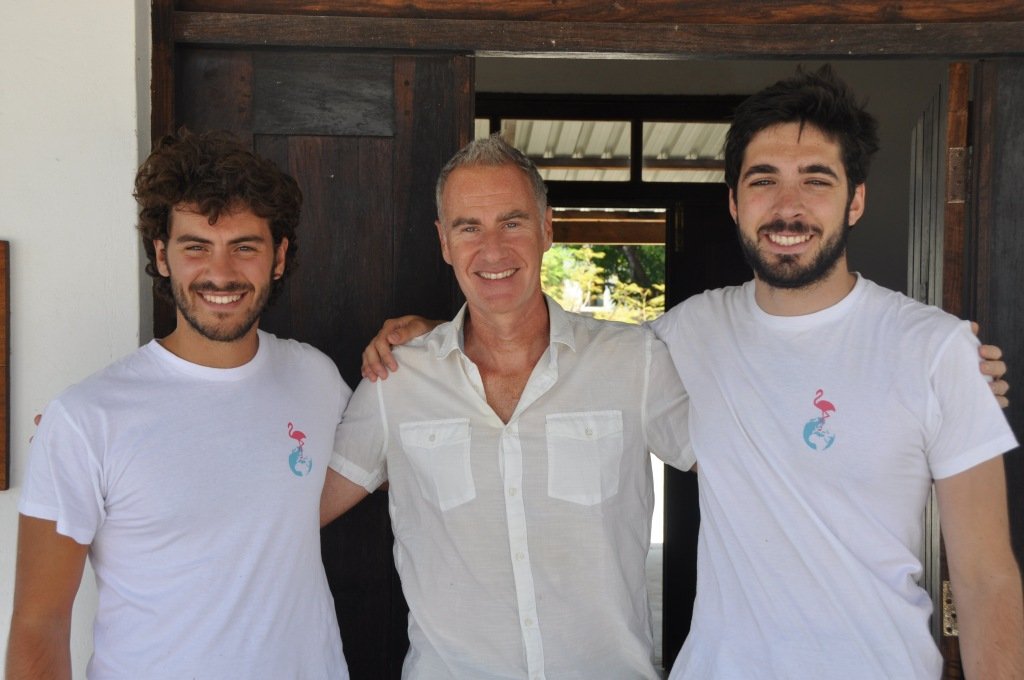Café e Bolo
On Monday in the island of Ibo we had scheduled our meeting with Fundación Ibo, a Barcelona-based NGO that works primarily in this and the surrounding islands (Quirimbas Archipielago). They are, along with Oikos, the only NGO working in this remote island. They work across a variety of different fields, ranging from education and economic activation, to nutrition and health. Before the meeting, we had seen their mark across the whole island, where crumbling structures have been rehabilitated into new facilities. We would later find out their purpose. These included a children and pregnancy nutrition centre, several education centres and some privately-owned businesses.
We had the chance to present our idea to their coordinator in Ibo. During the meeting we discussed individuals within the foundation that would be interesting to approach, due to their involvement in more technical aspects such as data acquisition for a Doctorate thesis, or the analysis of nutritional data and its digitisation. After the office-based discussion, we were given a tour of some of the facilities in the immediate proximity of the compound. This included the hospitality and oficios school, here we had the chance to see the only library in the whole of Ibo, as well as to taste a newly cooked paella and ceviche that the Tourism students had just learnt to make. It was delicious! Several educational centres have been created in order to capacitate the local population, especially in skills for the tourism industry, which accounts for the income of 45% of the population on the island.
We then proceeded to the Nutritional Support Centre, where they host 18 children (historically more) every morning to feed them a matabichos to compliment their diet and then have weekly monitoring, in order to ensure that children are growing healthy and with all their nutritional needs met. In addition, pregnant women are also included in a separate programme; which at its conclusion ensures that the baby is weighed at birth. The centre was created to fight the malnutrition that haunted the island for years on end given the lack of diversity within their diet (the problem was not scarcity in quantity, but scarcity in diversity of nutritional sources). We also had the chance to speak to the director of the centre. He demonstrated and explained how data is acquired from the children by the nurse, and how (and which data) it is then logged on to the computer.
Then by our own foot we headed to the Carpentry school, across the Vila do Ibo square. Here we spoke to a volunteer carpenter who had been in Ibo for almost three years, teaching locals to work the machines and take care of them. He spoke to us about the incredible manual and practical capacities that his students have, almost more capable than those he had worked with in Spain. This was an interesting remark, which we associated with the amount of “playing” that children have in their youth, where they spend their time on the streets making toys, playing football, dancing and what not!
We would like to thank Fundación Ibo for their proximity and their time. We spent a wonderful day looking at the work they have been carrying on. We were stunned about how involved they have become in the development of an entire community that had been marginalised for years given its remote location. We hope to be able to collaborate on different fronts and become part of the development of the island as well!





